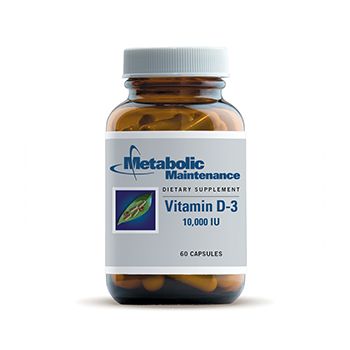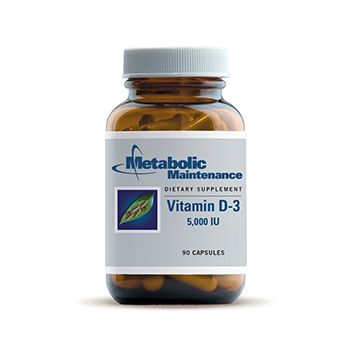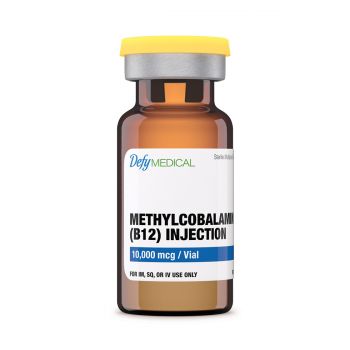Vitamin D3 troches (Quantity: 10)
Quantity: 10 troches

Vitamin D is the name given to a vitally important group of micro-nutrients. When activated, vitamin D becomes a potent steroid hormone, switching our genes on or off, and instructing our cells what work to do. Vitamin D's effects are varied and profound. It is structurally similar to steroids such as testosterone, cholesterol, and cortisol (though vitamin D3 itself is a secosteroid). The term "vitamin D" refers to several different forms of this vitamin. Two forms are important in humans: ergocalciferol (vitamin D2) and cholecalciferol (vitamin D3). Vitamin D2 is synthesized by plants. Vitamin D3 is synthesized by humans in the skin when it is exposed to ultraviolet-B (UVB) rays from sunlight. Foods may be fortified with vitamin D2 or D3, although human's should not rely on synthetic food fortification as a good source of Vitamin D3.
Cholecalciferol (vitamin D3) has many health benefits when levels are kept optimal and away from deficiency. These benefits include:
- Anti-Inflammatory - Chronic inflammation is becoming a major focus as a cause of many disease processes such as heart disease and cancer. D-3, also called "The anti-inflammatory" hormone, has been studied as an effective treatment to reduce chronic inflammation. Vitamin D deficiency is often misdiagnosed as fibromyalgia, chronic fatigue syndrome, and others. Deficiency has also been associated with multiple sclerosis, Graves disease, and age-related muscle wasting. Degenerative arthritis also progresses more rapidly when there is a deficiency of Vitamin D because of its anti-inflammatory properties.
- Blood Sugar Control - Deficiency of Vitamin D and D3 can inhibit the proper secretion of insulin and lead to increased insulin resistance. Studies show that supplementing with D3, especially during winter months, can help prevent and reverse Type II diabetes. The effect of vitamin D3 on insulin secretion and peripheral insulin sensitivity in type 2 diabetic patients. (Borissova AM, Tankova T, Kirilov G, Dakovska L, Kovacheva R. Source Department of Endocrinology, University Hospital, 6 Damjan Gruev str, 1303 Sofia, Bulgaria. )
- Optimal Immune Function - Vitamin D helps the immune system to fight infections. With a near-optimum blood level of vitamin D, you can expect fewer colds, 'flu, and other unwelcome opportunists (including Swine flu). Not only does Vitamin D enhance your immunity, but it inhibits the development of destructive auto-immune diseases such as diabetes, rheumatoid arthritis, lupus, and multiple sclerosis. Vitamin D is a major inhibitor of cancer, and part of this effect may be attributed to the increased vigilance of the immune system.
- Blood Pressure - Optimum levels of Vitamin D3 actually tend to reduce blood pressure in hypertensive people. Supplementing with Vitamin D can help reduce the risk of hypertension.
- Obesity -Deficiency of Vitamin D3 can lead to metabolic syndrome which contributes to the rapid accumulation of fat mass.
Click here to read more about this vitamin.
| Pharmacy | N/A |
|---|---|
| Instructions | No |








